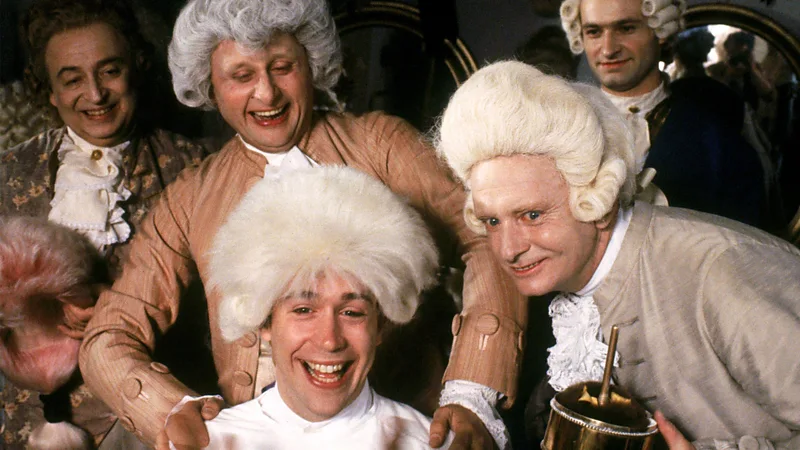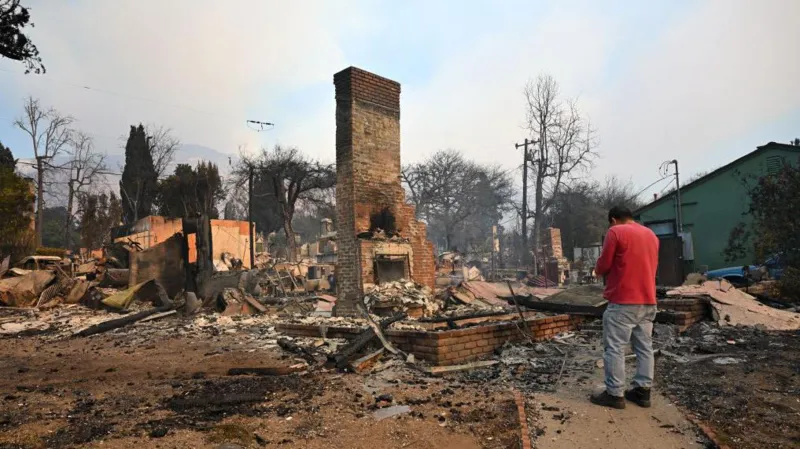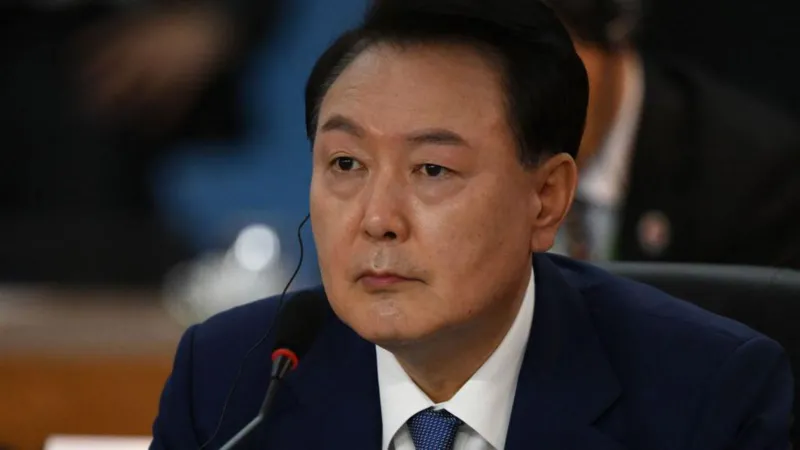Latest News
‘An unmistakable stab at the USSR’: Could Amadeus be the most misunderstood Oscar winner ever?

Released 40 years ago this month, Miloš Forman’s best picture-winning Amadeus is often accused of historical inaccuracies – but the film’s critics could be missing the point.
When it premiered 40 years ago, Amadeus drew an initial wave of praise. A historical drama revolving around the rivalry between two composers, Wolfgang Amadeus Mozart and Antonio Salieri, it went on to win eight Oscars, including for best picture. Miloš Forman took home the best director prize, Peter Shaffer won for best adapted screenplay and both of the lead actors were nominated: F Murray Abraham, who played Salieri, beat Tom Hulce, who played Mozart.
But in the years that followed, a backlash grew over what some people saw as Amadeus’s litany of historical errors. An article in The Guardian declared that “the fart jokes can’t conceal how laughably wrong this is”, and the BBC commented that “the film plays shamelessly fast and loose with historical fact”. Salieri, critics noted, was no pious bachelor (as attested by his wife, eight children and mistress), and it’s after all an odd kind of hateful rivalry when the real Mozart entrusted the musical education of his own son to Salieri. As for Mozart’s lewd humor, that cheeky insouciance was actually commonplace in middle-class Viennese society. Most egregiously of all, world-famous Mozart was not dumped in an unmarked pauper’s grave. If this is a homage to history, the complaint goes, it’s akin to Emperor Joseph II fumbling ineptly on the pianoforte and bungling every other note.
But this kind of cavilling may be missing the point. Forman’s aim for Amadeus can be seen as radically different from a typical biopic, and that was to use a fictionalised version of an epic clash between musical composers to allegorise the defining global rivalry of the mid-to-late 20th Century: the Cold War. Put simply, the film may have played fast and loose with 1784 because its real preoccupation was 1984.
Salieri is the Soviet Lada trying to be a Ford Mustang. He can’t be as great as Mozart, so he resorts to undermining and manipulating him – Paul Frazier
The film opens in Vienna in 1823. Grizzled court composer Salieri howls through a bolted chamber door that he has murdered Mozart, then slashes his own throat. Days later, as he convalesces in an asylum, a priest arrives to hear his confession. It doesn’t disappoint. Salieri recounts that as boy he made a vow of chastity to God as an expression of gratitude for, as he sees it, ushering in the providential death of his father to clear the path for his musical development.
Jump ahead some years, and Salieri is now an eminent composer in the court of Joseph II (Jeffrey Jones), where he eagerly awaits an introduction to musical prodigy Mozart. That eagerness curdles when he sees the man in the flesh – he turns out to be a lascivious vulgarian with an ear-splitting cackle. Convinced that God means to mock his own mediocrity, Salieri hurls a crucifix in the fire and vows retaliation. When Mozart’s father dies, Salieri seizes on the misfortune with a dastardly stratagem: dupe Mozart into believing that his father has risen from the grave to commission him to write a requiem, then murder him and pass off the masterpiece as his own. Mozart, feverish and besotted with drink, dies, leaving Salieri addled with bitterness and destined for obscurity.
International
LA fire victims fear new housing crisis

Michael Storc and his family had just survived a devastating wildfire.
Now they have to face a daunting new challenge that he had hoped to never experience again – the Los Angeles housing market.
After losing the Altadena home that he owned in the Eaton fire, he was scouring for a new place to rent, and having little luck.
“What’s available is not nice at all and the rents have gone up a lot,” Mr Storc told the BBC. “I told my teenage daughter we had to accept we would live somewhere not very nice.”
The Los Angeles area already has one of the most expensive real estate markets in the country. And with thousands now displaced by the Palisades and Eaton fires, Angelenos are anxious that the sudden surge in demand could make rents and home prices soar even higher.
California has an anti-price gouging law that prevents landlords from raising rents more than 10% after the governor declares an emergency. It applies to both existing and tenants and new leases.
Follow live updates
LA brain surgeon saves street from fires
Many Los Angeles County buildings are also covered by rent stabilisation laws, which prevent landlords from raising the rent for existing tenants above a certain percentage even in normal circumstances.
“It is illegal. You cannot do it,” California attorney general Rob Bonta said at a Saturday press conference. “It is a crime punishable by up to a year in jail and fines.”
Not everyone was certain that the law would be completely enforceable, however.
“We’re aware of that but my question is, how is that being regulated? And who’s monitoring that?” said Jessica Heredia, a realtor based in the high-end Brentwood neighbourhood for the last 20 years.
International
LA brain surgeon saves street from ‘apocalyptic’ wildfires

A Los Angeles brain surgeon who fought for almost a week to save the houses on his street from wildfires told the BBC he spent 15 years preparing for such an event.
Malibu resident Dr Chester Griffiths, 62, ignored evacuation orders to keep flames from the Palisades fire at bay with the help of his son and neighbour, until emergency services were able to reach them.
“We had always known that a fire would come someday – but we didn’t know when,” Dr Griffiths told the BBC’s Today Programme.
“We never fathomed it would be this catastrophic and apocalyptic.”
International
S Korea begins impeachment trial of suspended president

South Korea’s Constitutional Court has held its first hearing to decide if suspended President Yoon Suk Yeol should be removed from office after his shock martial law attempt last month.
The hearing ended within four minutes because of Yoon’s absence – his lawyers had earlier said he would not attend for his own safety, as there is a warrant out for his arrest on separate charges of insurrection.
In December, Yoon was suspended after members of his own party voted with the opposition to impeach him.
However he will only be formally removed from office if at least six of the eight-member Constitutional Court bench votes to uphold the impeachment.
According to South Korean law, the court must set a new date for a hearing before they can proceed without his participation.
The next hearing is scheduled for Thursday.
Yoon’s lawyers have indicated that he will show up for a hearing at an “appropriate time”, but they have challenged the court’s “unilateral decision” on trial dates.
The court on Tuesday rejected the lawyers’ request for one of the eight justices to be recused from the proceedings.
Yoon has not commented publicly since parliament voted to impeach him on 14 December and has been speaking primarily through his lawyers.
Investigators are also separately preparing for another attempt to arrest Yoon for alleged insurrection, after an earlier attempt on 3 January ended following an hours-long standoff with his security team.
Yoon is South Korea’s first sitting president to face arrest. The second attempt to take him into custody could happen as early as this week, according to local media.
The suspended leader has not commented publicly since parliament voted to impeach him on 14 December and has been speaking primarily through his lawyers.
Yoon’s short-lived martial law declaration on 3 December has thrown South Korea into political turmoil. He had tried to justify the attempt by saying he was protecting the country from “anti-state” forces, but it soon became clear it was spurred by his own political troubles.
What followed was an unprecedented few weeks which saw the opposition-dominated parliament vote to impeach Yoon and then Prime Minister Han Duck-soo, who succeeded him briefly as acting president.
The crisis has hit the country’s economy, with the won weakening and global credit rating agencies warning of weakening consumer and business sentiment.
Former presidents Roh Moo-hyun and Park Geun-hye did not attend their impeachment trials in 2004 and 2017 respectively.
In Park’s case, the first hearing ended after nine minutes in her absence.
Roh was reinstated after a two-month review, while Park’s impeachment was upheld.
-

 Entertainment6 months ago
Entertainment6 months agoEarthquake scientists are learning warning signs of ‘The Big One.’ When should they tell the public?
-

 International6 months ago
International6 months agoTarar accuses Imran Khan of conspiring with Faiz Hameed to destabilise Pakistan
-

 International4 months ago
International4 months agoPTI Announces Not to Boycott New Committees
-

 Business4 months ago
Business4 months agoMajor Corruption Scandal Uncovered at WASA Multan: Rs1.5 Billion Embezzlement Exposed
-

 Business6 months ago
Business6 months agoThe Impact of QR Codes on Traditional Advertising
-

 Business3 months ago
Business3 months agoHigh Court Blocks MDCAT Merit List Amid Controversy Over Exam Error
-

 Business6 months ago
Business6 months agoThe Benefits and Problems of International Trade in the Context of Global Crisis
-

 Business5 months ago
Business5 months agoFraud by Pakistani Firm Sparks Outrage in Business Community; Concerns Rise Over International Investment






